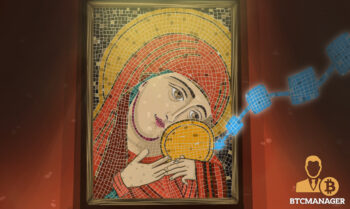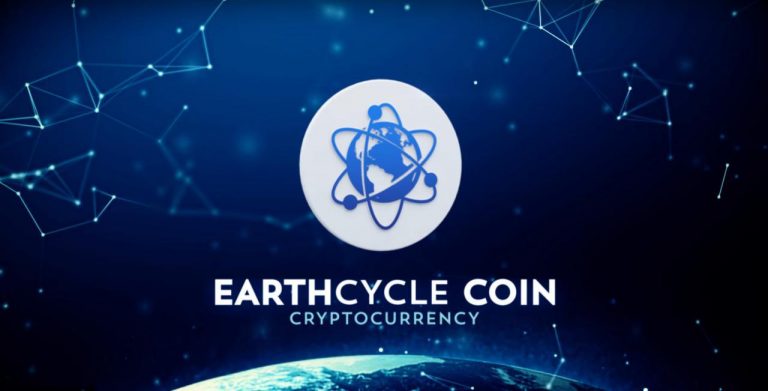2019-5-29 19:21 |
In recent years, the world economy has made incredible strides: access to technology is steadily increasing, Gross Domestic Product (GDP) is at its highest point since 2015, and unemployment is at a four-decade low.
Amid such rapid economic growth, you’d think public perception of traditional financial institutions would be on the rise. Unfortunately, continued operational barriers have continued to obstruct progress.
As a result of heightened globalization and rapid technological advancement, we as a society are entering a new stage of global consciousness — one in which individuals feel empowered to ask more of the financial entities that they trust with their assets. As technological accessibility increases, the obstacles preventing hardworking individuals from participating in the global economy are decreasing, and, as a result, many are starting to reject the costly and time-intensive financial structures that have long impeded economic progress.
Moreover, because users are gaining increased access to their financial information, many are starting to be more protective of their assets and expect centralized entities to be responsible for their actions.
In order to step confidently into the future, I posit that we must begin to think critically about how to provide transparency to many of the dated processes that don’t satisfy our needs completely. Using blockchain technology, the decentralized network supporting cryptocurrencies like bitcoin and ethereum, I believe we just may have found our answer: Decentralized finance.
What Is Decentralized Finance?The term “decentralized finance” is best defined as the act of building conventional financial tools, from bank accounts to wallets to exchanges, atop blockchain networks. Because these platforms are decentralized, meaning that they aren’t owned or operated by a single centralized entity, they are far more secure than their traditional counterparts.
Furthermore, decentralized financial networks are both transparent and censorship resistant, providing users with unprecedented access to credit, as well as their own financial information.
Consider the implications: Using only a smartphone or handheld computer, countless individuals, many of whom have never visited a bank or applied for a credit card, will now have access to a portfolio of decentralized applications that allow them to participate in the global economy — all at the touch of a button.
For users in emerging economies, this is hugely significant, providing many with the first tangible avenues to participate in global commerce. Although an estimated 1.7 billion people in the world remain unbanked, for example, a substantial portion of those people (1.1 billion) own a cellphone. Now with even the most basic internet connection, these individuals can gain access to a menu of decentralized financial tools, from cryptocurrency wallets to exchanges, that allow them to safely manage their financial assets.
Moreover, because information stored on the blockchain can be uploaded from anywhere in the world, decentralized financial tools can empower millions of individuals to build a comprehensive financial history that can be used to apply for a loan or purchase property.
As global technological accessibility continues to increase, we as a society have a real opportunity to lower barriers to entry for the most fundamental financial services. As we veer towards a world that’s more interconnected than ever before, I believe everyone should be given the same tools to succeed.
Efficiencies In The Financial SystemNot only would decentralized finance make it easier for new consumers to take advantage of the global market, but it would also streamline inefficiencies that have long thwarted economic development.
Cross-border transactions, for example, continue to be a costly and time-intensive process, leaving many with transaction fees of as much as 7%. Costs like these may seem menial at first glance, but they represent continued strain on individuals to participate in an increasingly globalized economic framework. This is why decentralized tools are so important. By removing costly intermediaries from the equation, consumers can interact with one another more directly, lowering remittance payments by as much as 4%.
Granted, a country’s economy is only as healthy as its citizens’ ability to sustain themselves. And for many citizens living in areas with high inflation rates, from Venezuela to Turkey, this is often easier said than done.
Without financial stability, it’s difficult for individuals to interact confidently in the value of their assets. If you live in a region with high market volatility, the uncertainty surrounding the whims of ever-fluctuating economic market automatically places you at a disadvantage.
Using stablecoins, which are cryptocurrencies pegged to the value of a fixed fiat counterpart such as the U.S. dollar or Euro, we aim to create trusted savings processes where citizens can circumvent domestic currencies by storing their assets in more stable markets.
In truth, the act of saving should not be a luxury afforded only to those living in economic prosperity. Through decentralized finance, we have a real chance to even the playing field.
Decentralized financial models have the potential to completely democratize the global economic system — but will their promise ever materialize?
Of course, even the most ardent blockchain and cryptocurrency supporters will admit that the road ahead remains uncertain. Adoption rates for decentralized projects are relatively low in comparison to their centralized counterparts, and infrastructure challenges continue to obstruct the viability of long-term mainstream applications.
However, amid this transition, one thing remains abundantly clear: As technological advancement continues to bring us into the digital age, the calls for a decentralized financial ecosystem will only get louder.
It may take time, but I believe that we’re much closer than you think.
Crypto Briefing does not accept any payment or financial benefit from expert guest authors.
If you are a blockchain expert with an interest in sharing your knowledge and experience, please contact our Managing Editor, Jon Rice, via email at editor AT cryptobriefing.com
The post Why Decentralized Finance Will Change The Global Economic Landscape appeared first on Crypto Briefing.
origin »Bitcoin price in Telegram @btc_price_every_hour
Decentralized Machine Learning (DML) на Currencies.ru
|
|




























